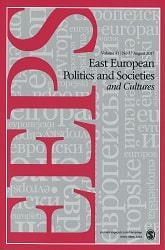Gender and Work during Transition. Job Loss in Bulgaria, Hungary, Poland, and Russia
Gender and Work during Transition. Job Loss in Bulgaria, Hungary, Poland, and Russia
Author(s): Christy M. GlassSubject(s): Gender Studies, Economic history, Political history, Labor relations, Government/Political systems, Transformation Period (1990 - 2010), Human Resources in Economy, Socio-Economic Research
Published by: SAGE Publications Ltd
Keywords: gender; work; job loss; transition;
Summary/Abstract: Did gender affect access to jobs during the transition from state socialism to market capitalism in Eastern Europe and Russia? Using cross-national survey data from 1993 and 2000, this analysis tests several competing hypotheses regarding labor force participation during periods of economic restructuring and recession. In 1993, women, those with service sector experience, and those with high levels of education enjoyed a degree of protection from job loss. By 2000, however, sizeable and significant penalties existed for many women, particularly those with young children. These findings are consistent with the short-term predictions of segmentation theory, which center on differences between men and women’s ability to hold onto jobs during periods of economic restructuring. As economies restructured and recovered from major economic losses, women became increasingly vulnerable in the nascent capitalist labor markets.
Journal: East European Politics and Societies
- Issue Year: 22/2008
- Issue No: 04
- Page Range: 757-783
- Page Count: 27
- Language: English
- Content File-PDF

